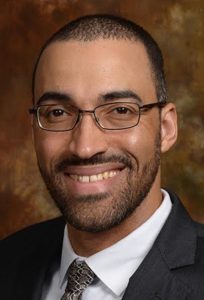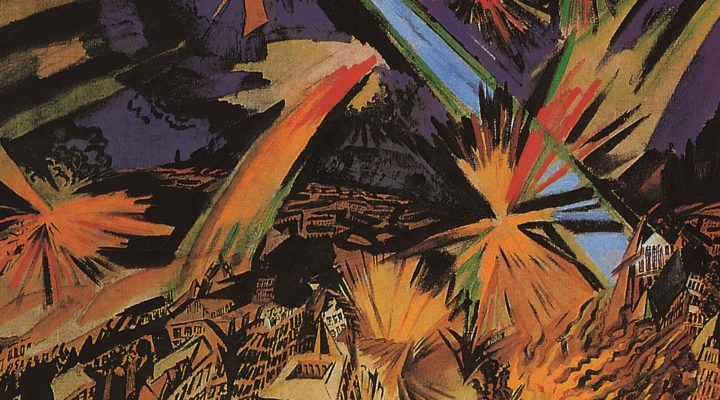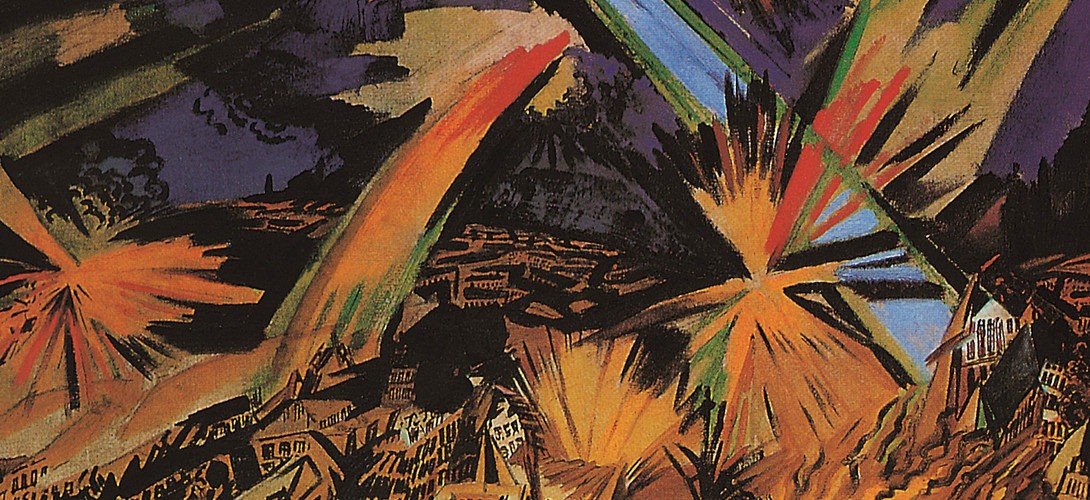This will be an apocalyptic autumn. While the biblical concept of “apocalypse” has been historically appropriated in some fantastic ways, its meaning in the Greek — “to reveal” — is what leads me to make this claim.
Many Americans will agree that this is the most important election of our lifetimes, and while it seemed impossible to raise the stakes any higher, the death of Ruth Bader Ginsburg last Friday evening accomplished that very feat; we are now in a space that can only be justly characterized in biblical terms.

Paul Robeson Ford
Apocalypse is often associated with representations of terror and horror, as the book of Revelation depicts in stark terms (so too, does Jesus’ representation in Mark 13, the so-called “little apocalypse”). In fact, what makes apocalyptic moments so terrifying is what is revealed — the truth of people’s intentions, beliefs and positioning in relation to God and the world. In Calvinistic terms, we finally find out who is elect and who is not (and we know where those “not” folks go).
A season with consequences
This autumn will be an apocalyptic moment of a different sort. Certainly, it will be less fantastically dramatic, but I am persuaded that it will be no less terrifying and no less consequential for the future of this nation. Our moral character and development as a country will be revealed in the course of this season. The decisions citizens make about whether or not to vote, and who to vote for will demonstrate either that we are truly and sincerely awake — as months of social unrest would suggest that we are — or that in fact, too many are still sleeping like Rip Van Winkle and missing the revolution.
The decisions that boards of elections and secretaries of state and justices of the court render about who can vote, how they can vote and whether or not to count — or keep on counting — their votes will reveal whether or not partisan politics has completely and irreparably corrupted our pretense to be a democracy, and whether or not our laws have kept pace with what is right and just and equitable.
“Every choice, every ruling, every decision, will reveal something about whether a majority here has mustered the ‘wisdom and courage’ to rise to the occasion.”
Every choice, every ruling, every decision, will reveal something about whether a majority here has mustered the “wisdom and courage” to rise to the occasion, or whether we are still betrayed by a prevailing brokenness that places us on the brink of the sort of destruction that befell Sodom and Gomorrah. The question will be asked, in the words of a desperate Abraham as he pleaded with the Lord, “Suppose there were 50 righteous with the city; would you also destroy the place and not spare it for the 50 righteous that were in it?”
Abraham’s words resonate acutely as we consider the passing of the Notorious RBG — a secular Jew, but one who was deeply influenced by Jewish teachings on justice for the marginalized among us — on Rosh Hashanah, the day that marks the Jewish new year. Tradition makes clear that only the most righteous are privileged to die on this day, and this serves as only further confirmation of the transcendent weight of this season.
The decisions that are made in the weeks ahead by the president, members of Congress and the voters who elect them (and can unseat them) will reveal whether or not we are listening to the Holy Spirit (or perhaps, the ruach), or whether we have simply hardened our hearts, as Exodus tells us befell the pharaoh in the season preceding his fall.
Remembering the Civil War
In light of the comparisons that have been made in recent years, it is worth noting that the history of late antebellum America reveals clearly that a series of critical decisions were made by those in power — and the people who put them in power — that rendered a violent resolution to the “sectional conflict” inevitable; and only of late have we returned to see the Civil War as so many recognized it at the time: the judgment of a nation that had been broken by its original sin of slavery.
“Only of late have we returned to see the Civil War as so many recognized it at the time: the judgment of a nation that had been broken by its original sin of slavery.”
That sin could only be cleansed by blood — that of the very people who had stood by, done nothing, advanced the immoral cause of slavery further, or thrown up their hands in exasperation and given up on trying to seek redemption and a return to what God had always intended — for God’s people of all colors to live in a state of harmony, equity and peace-with-justice. This was the only way forward for them then, and it is the only way forward for us now.
In and among the events of recent months, there are many signs that our understanding of this original sin has matured in meaningful ways. There are many signs that God is “doing a new thing.” But there also is a stubborn, stiff-necked resistance that should remind us of those pro-slavery forces that would not yield to anything but the gun. So the question is: Do we perceive this new thing that God is doing, and will we step into it faithfully? The upcoming chapter of revelation will answer these questions.
This will be an apocalyptic autumn.
Paul Robeson Ford is senior pastor of First Baptist Church (Highland Avenue) in Winston-Salem, N.C. He was born and raised in New York City and grew up at the Riverside Church under the leadership of James A. Forbes Jr. He received a master of divinity degree from the Divinity School at the University of Chicago, where he is now a candidate for the Ph.D. in theology.
Related articles:
John Coltrane, the power of ‘a love supreme’ and the call to radical discipleship
Repent and be healed: Our response to the global pandemic has revealed our sin


